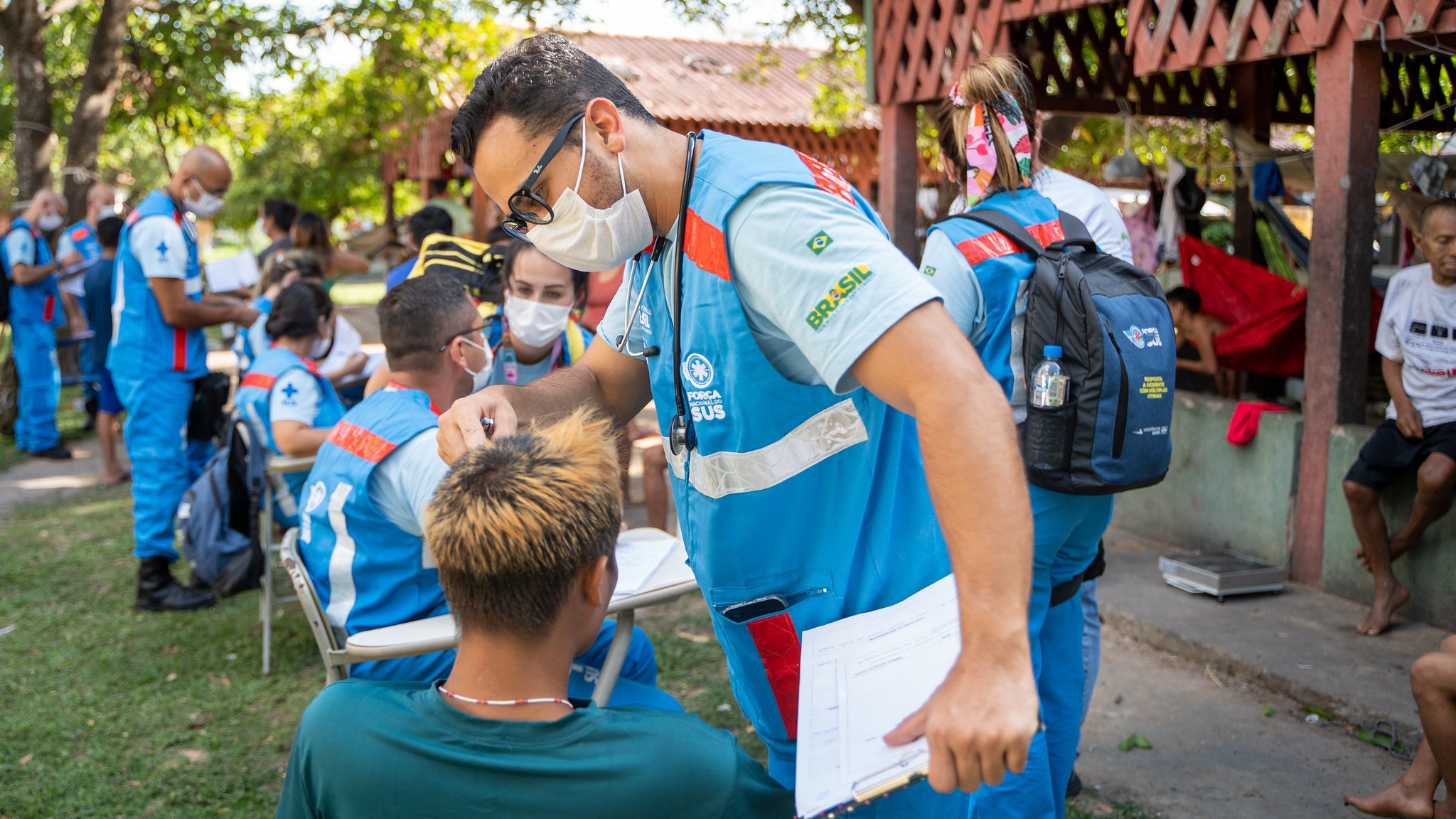The Brazilian National Health Council adopted Resolution 715 as part of discussions during the 17th National Health Conference. It encompasses the final recommendations from the working groups convened during the event. This document includes decisions intended for inclusion in both the Multiannual Plan, which defines the guidelines and objectives of the federal administration for a four-year period, and the National Health Plan, which serves as the official guiding document for the Brazilian state over the next four years. Among the recommendations outlined in the Resolution, there is a focus on addressing the career path within Brazil’s Unified Health System (SUS) as a means of recognizing and valuing all public health workers.
On August 28, the Brazilian Center for Health Studies (Cebes) organized a debate featuring Fiocruz researcher Maria Helena Machado and National Health Councillor Fernanda Magano. They delved into this issue further, with Machado, who is responsible for important research on the nursing workforce, passionately advocating for giving this matter adequate attention. She emphasized that truly valuing the SUS also means acknowledging and appreciating the individuals working within the public health system.
Also read: Over 4.000 delegates gather to discuss future of Brazil’s iconic health system
“Health is a public good, but health workers are still not treated in line with that. One of the big risks to the SUS right now is the precariousness of work, which emerged under irresponsible managers. We can modernize employment contracts, but we still need to fight against precarious work. You can’t have a decent career path based on precarious work, without a qualified workforce, and without secure employment,” she said.
Although the subject may appear straightforward, it remains a contentious point in the ongoing debate between progressives and neoliberals. On one side, there is a commitment to upholding public services, while on the other, there’s a persistent push for austerity measures, especially impacting the working class, even as the country’s budget benefits the wealthy. This situation underscores the central importance of the Career and Salary Plan (PCCS), extending beyond the realm of healthcare.
Resolution 715, in Article 50, reflects a shift in the country’s political landscape since Lula’s victory, advocating for the creation of a Single Interfederative Career with tripartite financing, a national salary floor for all professional categories, public tender-based hiring, and the eradication of outsourcing. It also emphasizes the need to value health workers, particularly those working with Indigenous communities, expand continuous education policies, and address the actual needs of the Brazilian population.
Also read: World Health Assembly resolution on the health of Indigenous peoples is a landmark moment
Significant challenges remain, as evidenced by proposals like the Administrative Reform, announced as a solution to a supposed deficit but potentially posing obstacles to establishing a guaranteed SUS career path. “Nurses’ struggles are a good example of how hard workers have to fight to achieve better conditions, but also of how a SUS career path could prevent their problems,” added psychologist Fernanda Magano, a member of the National Health Council, during the debate.
The COVID-19 pandemic has further highlighted the importance of the SUS and social protection in general. While the pandemic has brought in more evidence in support of public health systems, precariousness has increased, pointed out Machado. “It’s crucial to resume employment tenders to renew the workforce. Around 20% of the country’s workers have developed health problems, such as depression. This is very serious. I see no way of protecting the SUS without protecting the workers. We need to understand this in order to truly make health a public good,” she said.
Machado emphasized the magnitude of this workforce, estimating it at 4 to 4.5 million workers in the public health sector alone. Guaranteeing a career plan for all would be an ambitious endeavor with socioeconomic impacts yet to be fully calculated.
To accomplish such a feat, dismantling the neoliberal administrative and labor framework is essential, as noted by Cebes President Carlos Fidelis during the debate. Privatization and outsourcing pose significant obstacles to improving working conditions as advocated for by health activists.
Fernanda Magano pointed out the issues with agencies like the Agency for the Development of Primary Health Care (ADAPS), which have not fulfilled their promises, including in programs such as Médicos pelo Brasil (Doctors for Brazil), potentially undermining the idea of promoting a SUS career. “ADAPS remains an autonomous service with the possibility of contracting [services]. It influences the field of indigenous health a great deal and opens the door to different forms of employment, clashing with the idea of promoting a SUS career pathway,” said Magano.
After six years of neoliberal reforms, which favored only the elite, it’s time to prioritize social welfare for the majority. The SUS, possibly the most critical public policy in post-pandemic Brazil, could serve as a precious starting point for recognizing and valuing millions of Brazilians who remained invisible until now.
Maria Helena Machado emphasized the need to address the working environment, raise the low salaries of SUS workers, particularly those working in the field of Indigenous health, where precariousness is prevalent. “Indigenous health, which employs 16,000-17,000 workers, is a major place of precariousness. The effect on women is another factor to take into account. Women make 70% to 80% of the SUS workforce. A career path is not just a necessity but the salvation of the SUS, especially considering the repercussions on the mass of workers in the system. Today we have 14 medical professions recognized through the CNS and another portion of workers that gravitate towards the system, in addition to support occupations. We managed to survive the pandemic, but there have been many consequences for the mass of workers,” concluded Maria Helena Machado.
The article was written by Gabriel Brito, and originally published in Portuguese on Outra Saúde.
People’s Health Dispatch is a fortnightly bulletin published by the People’s Health Movement and Peoples Dispatch. For more articles and to subscribe to People’s Health Dispatch, click here.





